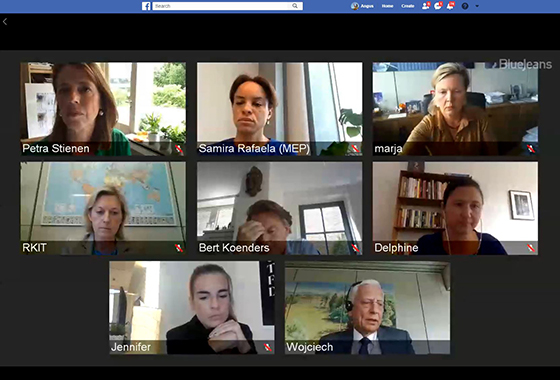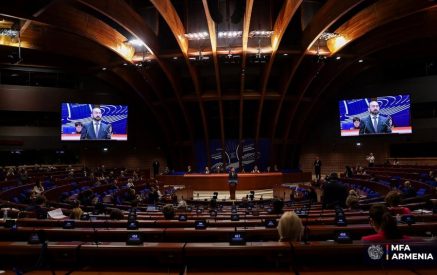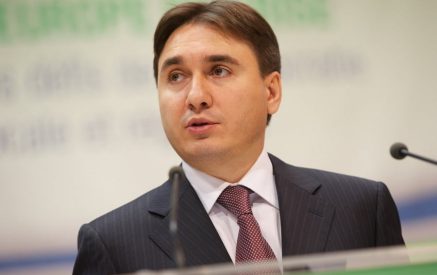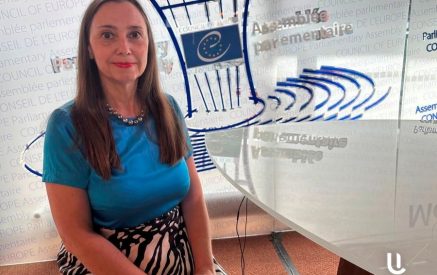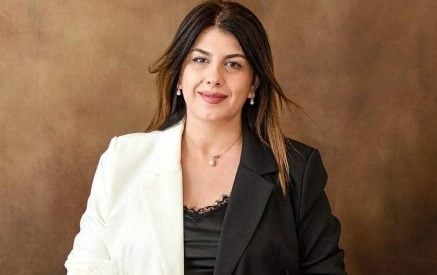Women should be fully involved at the heart of crisis response planning and decision-making, participants agreed at a PACE webinar on the gender dimension of foreign policy in the response to COVID-19, bringing parliamentarians together current and former diplomats as well as academics.
Opening the webinar, organised by the Assembly’s Equality Committee, the rapporteur on the topic Petra Stienen (Netherlands, ALDE) said management of the first wave of the COVID-19 crisis had “had a male face” and spoke of the devastating effects of what she described as “machismo politics” in the early stages of the pandemic. “We need to see leaders who show direction, give meaning to their direction, but also who show empathy,” she said, citing remarkable examples of inclusive leadership by women leaders such as Jacinda Ardern and Angela Merkel.
The crisis had been “a magnifying glass” for existing inequalities in our societies, she pointed out, urging better protection from gender-based violence for women and girls, and public debates on the gender dimension of the pandemic.
Bert Koenders, Professor of Peace, Justice and Security at Leiden University, said there had been “some progress” in women’s representation in the field of foreign and security policy in recent years, but added: “It is about more than women in senior positions, it is also about changing the content of policy – so-called ‘women’s issues’ are often the cornerstones of foreign and security policy, and both men and women have big roles to play.”
Read also
Ann Bernes, Swedish Ambassador for Gender Equality and Coordinator of Feminist Foreign Policy, outlined how her country had been the first to establish a feminist foreign policy. “This is beginning to become the new normal – that’s what we were aiming for.” This was no longer seen as ‘a women’s issue’ but was regarded as a question of sustainable security, and other countries were beginning to follow Sweden’s example. The key challenge, she added, was “how to reach out and convince those who do not agree”.
Samira Rafaela MEP spoke of the situation in the European Parliament, where the current representation of women is just over 40 per cent, though it is only around 35 per cent in committees dealing with external affairs. The parliament was urgently pressing for EU institutions to include gender analyses in their proposals, introduce gender mainstreaming across the board, and step up gender-based budgeting.
Delphine O, Secretary General of the Generation Equality Forum 2020-2021 representing France’s Foreign Ministry explained how France, drawing on the Swedish model, tried to bring the gender dimension to the forefront whenever the country chaired multilateral bodies such as the G7 or the UN Security Council. The “Generation Equality Forum”, a global gathering scheduled for July, had been postponed because of the COVID crisis, but the delay was in fact adding to the urgency and momentum of the event, she said. “A year after the crisis, it will be a place for everyone to gather and take stock of the impact of the crisis – and what was done. It will be a resource for innovative solutions.”
Dr Jennifer Cassidy, an Oxford University lecturer and former diplomat, spoke of her personal experience of being twice hospitalised as a result of COVID-19, and cited the words of former Swedish Deputy Prime Minister Margot Wallström on crafting policies that directly affected women: “Nothing about us, without us.” Normative ideas of masculinity and manhood had shaped policy and institutions for decades, and this needed to change.
PACE




















































